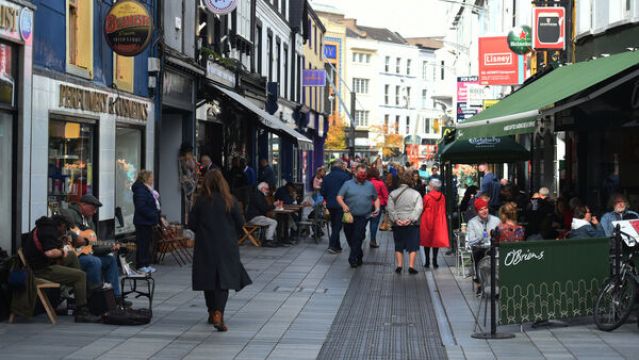Taxpayers could face an industry compensation bill of €1 billion if the Press Up hospitality group wins its legal challenge against the State over the latest round of Covid-19 measures, a report prepared for the group claims.
The group is suing the Government seeking compensation for the shutdown of the hospitality sector and a High Court declaration that the rules are an unconstitutional interference in its business, according to the Irish Times.
It has commissioned a report by well-known economist, Jim Power, which warns of “severe financial repercussions for the State” if the company wins its case and other claims follow.
The report claims the compensation bill for the whole hospitality sector could reach €1 billion.
The group of 55 restaurants, bars and hotels - including the Stella theatre and the Workmans Club in Dublin - is run by businessmen Paddy McKillen Junior and Matt Ryan.
Response
The State has yet to file a response to the claims made in the legal case, which has been entered onto the court’s fast-track commercial list.
Government has yet to finalise plans this week which may leave pubs and restaurants closed for part - or all - of the Christmas period due to Covid-19.
The Press Up group hired economist Mr Power to produce a report on “the disproportionate impact” of Covid-19 restrictions on the hospitality sector.
Mr Power highlighted that of the 350,000 people on the Pandemic Unemployment Payment, almost 30 per cent worked in accommodation and food services.
'Policy failure'
He concluded that the State “policy failure” of failing to design a sufficient test and trace system for Covid-19 and failing to add sufficient intensive care capacity since March led to the introduction of current Level 5 restrictions.
The report claims that “policy is being driven by circumstantial evidence,” referencing that only 49 of the 8,311 virus clusters identified so far have been traced back to hospitality outlets.
However, public health officials have previously said it is likely that hospitality outlets were the original source of some of the more than 4,000 clusters identified in private homes.
Anecdotal evidence has also emerged abroad to suggest hospitality outlets contribute to “super-spreader” virus events, with health experts saying the disease is easily spread in spaces such as restaurants and bars.







